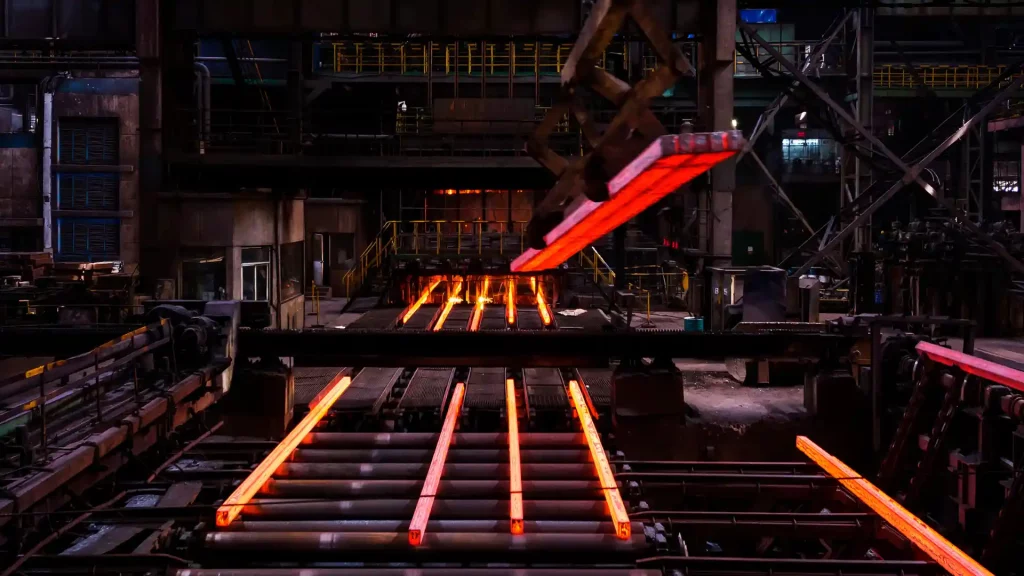While the proposed acquisition resonates as a business endeavour between Nippon Steel and U.S. Steel, divergent perspectives emerge from policymakers on both sides
The proposed acquisition of United States Steel Corp. by Japan-based Nippon Steel Corp. for a staggering $14.1 billion has ignited a flurry of scrutiny and debate, drawing attention from political leaders and stakeholders on both sides of the Pacific. The bid aims to amalgamate the two entities into the world’s second-largest steel conglomerate, sparking concerns related to national security, supply chain reliability, and economic implications.
President Joe Biden’s top economic advisor, Lael Brainard, recently voiced apprehensions regarding the transaction, emphasizing the need for meticulous scrutiny due to its potential ramifications on national security and supply chain stability. Brainard’s statement, released on Thursday, amplifies the political pressure building around the acquisition, especially given the longstanding ties between prominent Democrats, union leaders, and the Biden administration.
To assuage concerns and navigate the intricate regulatory landscape, U.S. Steel has initiated a proactive approach by actively seeking a comprehensive national security review. A pivotal component of this acquisition hinges on securing approval from the Committee on Foreign Investment in the United States (CFIUS), a prerequisite highlighted in their Securities and Exchange Commission filing. Brainard iterated that the administration remains poised to evaluate the findings of any ensuing investigations and take requisite action as deemed appropriate.
While the proposed acquisition resonates as a business endeavour between Nippon Steel and U.S. Steel, divergent perspectives emerge from policymakers on both sides. Japan’s newly appointed trade minister, Ken Saito, views the transaction as an intrinsic business matter, urging Nippon Steel to adhere to requisite procedures diligently. Emphasizing the enduring strength of the U.S.–Japan alliance, Saito underscores the imperative for continued collaboration, particularly concerning economic growth within the Indo-Pacific region and mutual economic security.
Contrastingly, skepticism pervades certain sectors in the United States, with demands emanating from pivotal 2024 battleground states within the nation’s industrial heartland to subject the acquisition to rigorous scrutiny, if not outright prohibition. Echoing these sentiments, Pennsylvania’s Democratic senators penned a missive to Treasury Secretary Janet Yellen, advocating for the termination of the deal.
The proposed merger converges with two foundational pillars of President Biden’s political narrative: his avowed commitment to bolstering unions and his posture as a trust-buster within the corporate landscape. David McCall, President of the United Steelworkers of America, articulates the union’s stance, advocating for an exhaustive regulatory review to ascertain the transaction’s implications for workers and U.S. national security interests. McCall lauded Brainard’s elucidation, aligning with the concerns articulated by the White House regarding the prospective impact on the domestic steel production ecosystem.
As the acquisition unfolds, it could serve as a litmus test for President Biden’s newly instituted regulations targeting corporate mergers. The Justice Department and the Federal Trade Commission recently unveiled comprehensive guidelines aimed at forestalling corporations from engendering industry dominance through aggressive acquisition strategies. Consequently, the U.S. Steel acquisition stands poised to navigate a labyrinthine regulatory landscape, potentially influencing future mergers and acquisitions within the steel industry and beyond.
Nippon Steel’s proposed acquisition emerges as a seminal transaction with far-reaching implications spanning economic, political, and regulatory spheres. As stakeholders, policymakers, and industry leaders converge on divergent perspectives, the acquisition stands as a crucible, testing the resilience of U.S.-Japan relations, the efficacy of regulatory frameworks, and the alignment of corporate strategies with national imperatives. As the narrative unfolds, the global steel industry and associated sectors remain attuned to the developments shaping this consequential transaction.
